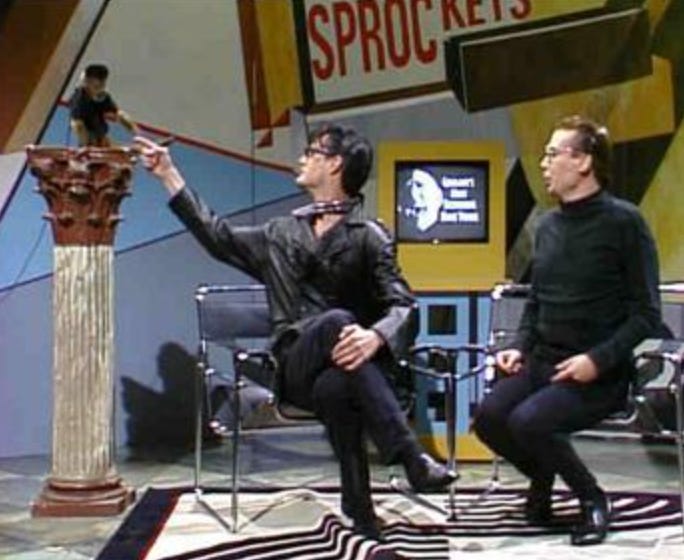Artistic caricatures know what they don’t know, and that’s what makes them hilarious. Governing caricatures don’t know what they don’t know; that’s what makes them tragic.
At some point, probably after watching another theatrical DOGE blunder, I realized that maybe the theatre was the point. Perhaps DOGE wasn’t just about reducing the size of government; it was about creating a circus-like spectacle of taking on Washington.
So I started thinking about which theatrical event or character might serve as a metaphor for the enterprise (which I had expected to fail from the start). For a while I thought it was the Bobs from Office Space. A couple of semi-bumbling but inscrutable outsiders who suddenly arrive to downsize an inefficient, nondescript, office-park firm.
Then I thought it was Anna Kendrick’s character Natalie from Up in the Air: A hard-charging, cold-as-ice consultant with big ideas for using technology to more swiftly fire people.
But neither seemed to really capture what was happening. DOGE, I decided, couldn’t really be understood by focusing on the army of dropped-in consultants or their methods of downsizing.
DOGE was, at root, a mindset. A mindset that said you don’t need to know anything about about government in order to whip government into shape. A mindset that (ostensible) technical experts and tough-mindedness are all we really need to tame Uncle Sam. A mindset marked by self-assured ignorance—the bull-in-a-china-shop brashness of those with far more confidence than competence.
This is how I came to write a piece about DOGE’s demise by discussing “Sprockets,” the brilliant, hysterical SNL sketch about Cold-War German culture written by and for people who knew next-to-nothing about Cold-War German culture.

Why DOGE Failed
I hope you read my new essay over at Law & Liberty called “Why DOGE Failed.” The bulk of it is dedicated to two things: First, explaining how “right technocracy” is no better than the traditional “left technocracy;” and second, describing how this much-ballyhooed effort bungled what could’ve been invaluable work.
I don’t want to give away too much here, so I’ll just end with this thought: DOGE, like so so so so many failed government-reform efforts that came before it, was destined to fail because it was based on a caricatured understanding of governing and government. Just as television parodies, like “Sprockets,” are based on caricatures of people and events.
However, theatrical caricatures know what they don’t know, and that’s what makes them funny. Government-reform caricatures don’t know what they don’t know, and that’s what makes them tragic.
As I wrote in the essay:
It’s time to admit that DOGE was the “Sprockets” of government reform. Elon Musk seemed genuinely enthusiastic about cutting government, but he didn’t know a lick about governing. He took bits of information, added some uncharitable speculation, and created a caricature of policy and public leadership. In the end, what he offered America was comic theatre. Sadly, too many conservatives gleefully tuned in, thinking this farce was real.




